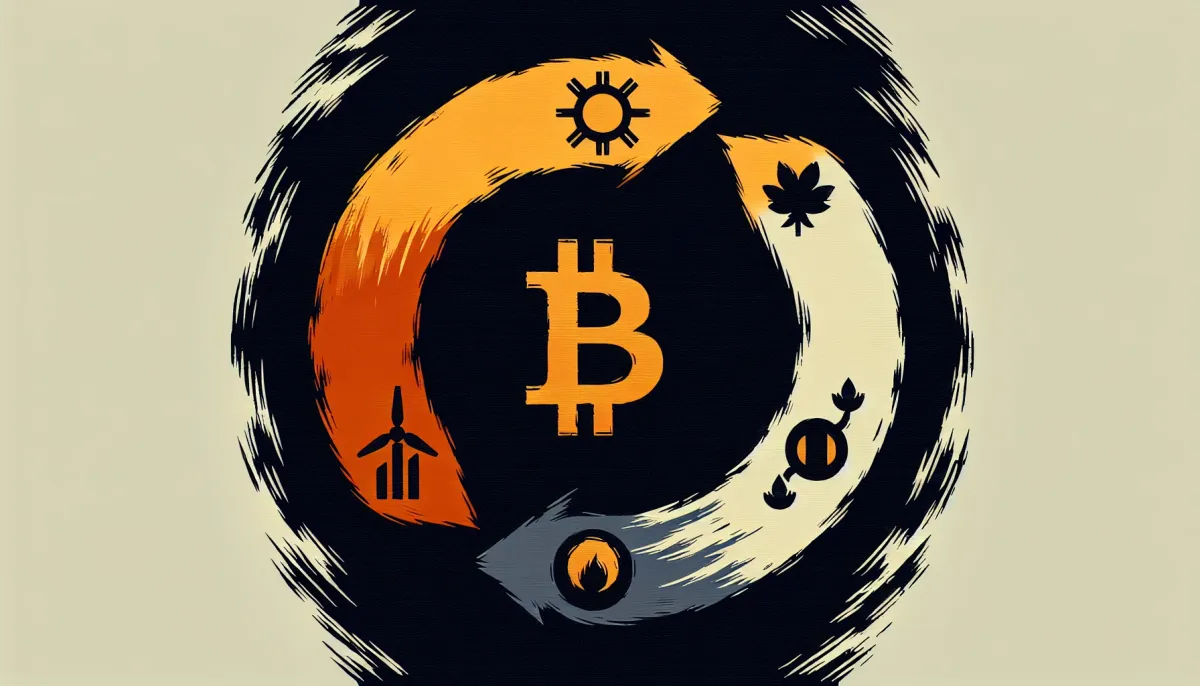Banning Bitcoin Mining in Renewable-Rich Regions Could Increase Global Carbon Emissions, Study Finds

A recent research paper suggests that banning Bitcoin mining might actually lead to higher global carbon emissions in some cases.
The study argues that if Bitcoin mining is prohibited in areas that use a lot of renewable energy—like Canada, Norway, or El Salvador—it could push mining operations to countries that rely more on fossil fuels, such as Kazakhstan, Russia, or China.
This working paper comes from researchers at Exponential Science, a nonprofit blockchain research group, along with experts from University College London. Keep in mind, it hasn’t gone through peer review yet.
Bitcoin and other proof-of-work blockchains depend on computers that perform energy-intensive computations, a process known as mining. This often requires fossil fuels for power.
Because of this, many activists around the world are calling for bans on Bitcoin mining to help cut down on fossil fuel use and greenhouse gas emissions.
If Canada were to ban Bitcoin mining, the report claims it would have the largest negative impact on any single country. It estimates that such a ban could increase global mining emissions by 5.6%, releasing an extra 2.5 million tons of CO2 into the atmosphere.
Canada is one of the top Bitcoin mining countries, according to the Cambridge Centre for Alternative Finance, and it’s also a leader in renewable energy—over 17% of its total energy comes from renewable sources.
In comparison, the researchers estimate that a nationwide ban in the U.S. would lead to a 0.64% rise in emissions, adding about 287,000 tons of greenhouse gases. However, the environmental impact varies greatly depending on the state.
For instance, a ban in fossil fuel-heavy states like Kentucky or Georgia might help reduce emissions. But in states with plenty of renewable energy, like New York, it could have the opposite effect. The paper also claims that a European Union-wide ban could result in an additional 523,000 tons of greenhouse gases.
The researchers based their findings on the assumption that miners would seek to continue their operations elsewhere, moving to countries with lower energy costs, such as Kazakhstan or Malaysia, to remain profitable.
That said, banning mining in some countries could still have benefits for emissions reduction.
The paper notes that a ban in Kazakhstan could lower network emissions by about 7.6%, which translates to a decrease of 3.4 million tons of CO2 each year.
The authors suggest that “alternative regulatory approaches could prove more effective” than outright bans. This could involve encouraging the use of renewable energy for mining in high-carbon areas and attracting Bitcoin mining to low-carbon regions through tax incentives and other benefits.
In March 2024, Greenpeace U.S. released a critical report on the Bitcoin industry, alleging that it has “deep ties” to the fossil fuel sector and “right-wing climate deniers.”
On another note, Deutsche Telekom’s subsidiary T-Systems MMS launched a pilot project with Bankhaus Metzler to establish Bitcoin mining powered by surplus renewable energy. This initiative aims to utilize electricity from renewable sources that would otherwise go unused due to grid limitations or insufficient storage. The project, called "Digital Monetary Photosynthesis," seeks to provide valuable data and insights for future planning.
In a separate incident, a resident of Keystone, Colorado, fell victim to a sophisticated crypto scam last week, losing over $6,000 in Bitcoin. The fraudsters posed as law enforcement officials, threatening arrest for missed jury duty, according to the Summit County Sheriff's Office. An additional $4,000 transfer was in the works, but deputies managed to intervene before it went through.
In just a few days, the Solana-based meme coin Peanut the Squirrel (PNUT) surged from relative obscurity to achieve $150 million in trading volume. This spike was fueled by a mix of public outrage and pre-election excitement. The story went viral after caretaker Mark Longo announced on social media that New York’s Department of Environmental Conservation (DEC) had taken Peanut and another pet, a raccoon named Fred, due to rabies concerns.
